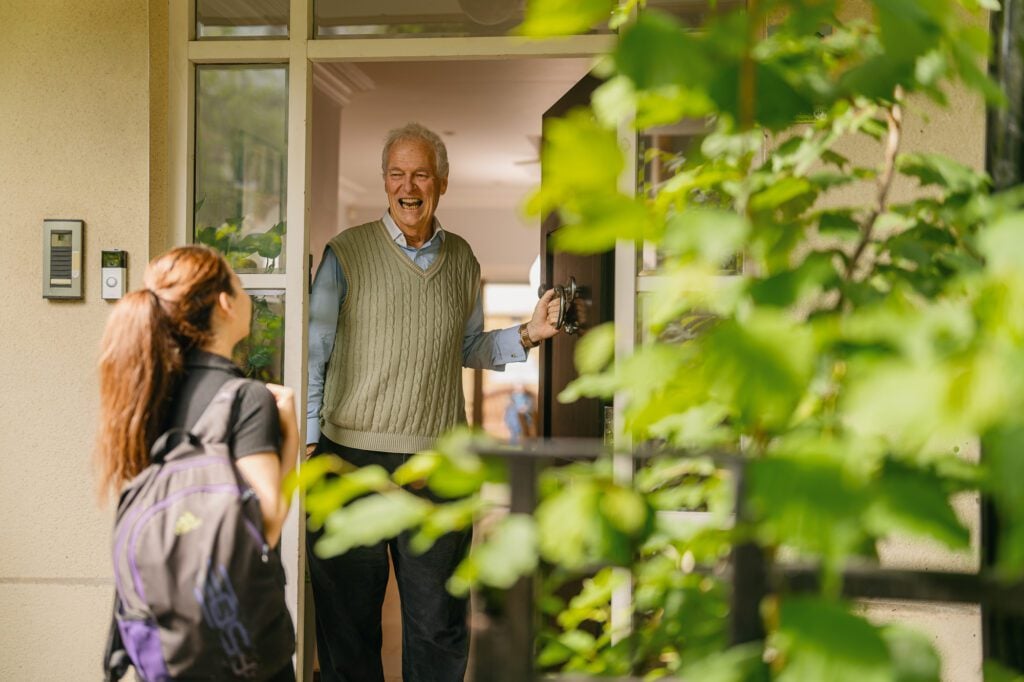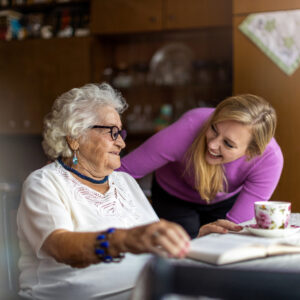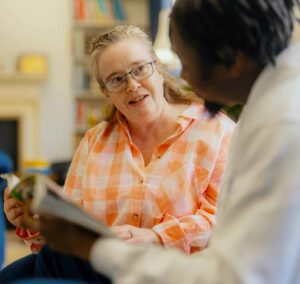POLICIES & DOCUMENTATION
Expected Carer Standards
Discover what it means to be a carer on our platform.

These standards aim to ensure Care Recipients and Customers receive a consistent, high-quality, safe and effective service from Self-Employed Carers using the Elder Platform.
These Standards cannot cover everything that might be relevant and set out the minimum standards expected from Self-Employed Carers. For the full version of our Expected Carer Standards please visit this link.
Download a copy of the Expected Carer Standards
Click the button below to view and save your own PDF copy of the standards we’ve covered on this page.
1. Promote person-centred care support, independence and active living
At Elder we strongly believe Care Recipients have the right to live their own life, on their own terms. We expect you to ensure that care is provided in a safe and dignified way.
As a Self-Employed Carer you should strive to empower Care Recipients to live as fully and independently as possible.
We expect you to take the time to get to know the Care Recipient, discover their daily routine and respect their personal boundaries and preferences.
2. Practise within your knowledge, skills, and experience
We trust that Care Recipients are in good hands with you.
You should only apply to placements which are most suited to your skills, knowledge, experience and training. Honesty about your strengths and limitations as a Self-Employed Carer will help facilitate success and safety for both yourself and the Care Recipient. This requires reading placement specifications in full and being comfortable with duties outlined in the Care Recipient’s Care Request. It is up to you to seek clarification from the Care Recipient/Customer/Family to ensure you fully understand placement requirements.
Specialist care that you should not be undertaking on the platform includes:
- STOMA care
- PEG care
- Wound Care
- Ventilation, Oxygen Support, BiPAP or CPAP Support
- Unstable Epilepsy
- Controlled Drug Administration
- Covert Medication Administration
- Glucose readings via finger pricks
- Injections
- Pessaries, Enemas, Suppositories
- Active addiction
- Acute mental health disorders
- Any actions which could be considered a deprivation of liberty (e.g. locking doors to prevent someone from leaving their home)
3. Be Respectful
We expect you to treat everyone with dignity and respect. This also means being respectful of the Care Recipient’s home and property.
Elder is committed to equality of opportunity and Elder offers freedom of choice: carers and customers are free to choose who they work for and with, based on transparency, honesty and mutual respect.
Elder can’t and won’t discriminate or tolerate any discrimination against any carer, customer or employee. For Elder’s Respect & Anti-discrimination policy, please visit this link.
4. Be reliable, accountable and transparent
We expect you to be reliable and honest, at all times, for matters big and small.
Accountability and transparency mean being responsible, open and candid, especially when any mistakes have taken place.
This not only applies to your interactions with Care Recipients, Customers, Elder HQ staff but also applies to other medical, social care and emergency professionals and to any schedule changes, cancellations, planning time off, handovers to colleagues and voicing any concerns. We understand that plans can unexpectedly change but we expect as much advance notice as possible so we can work with Customers to ensure alternative arrangements can be made.
5. Be professional and proactive
It is important that you present yourself professionally whilst on a placement.
Work cooperatively and proactively with the Care Recipient, Customer and others involved in the care and support of the Care Recipient.
Report concerns immediately. Depending on the nature of your concern, concerns should be raised to the Customer, Care Recipient’s health and social care professionals (i.e. social worker, GP, or other specialist), or Local Authority Safeguarding Team. The primary working relationship is between you and the Customer. Should you or the Customer wish to raise concerns to Elder, you are free to do so.
Personal mobile phones should only be used when on a scheduled and agreed break unless there is an emergency.
6. Communicate clearly and effectively
We expect Self-Employed Carers to maintain polite and professional communication when interacting with Care Recipients and/or Customers, their families, other Self-Employed Carers and the Elder team.
This applies to all forms of communication, including any care notes or records you and the Care Recipient/Customer may choose to implement.
If you notice any changes with the Care Recipient you should take proactive steps and communicate and discuss them with the family, Customer and other professionals. Encourage the Care Recipient and/or Customer to update the Care Request, so that the Care Request accurately reflects the needs of the Care Recipient.
7. Protect and respect the right to confidentiality
At Elder we take people’s right to confidentiality and data protection very seriously.
You must maintain confidentiality and not at any time disclose information of a confidential or sensitive nature without clear authorisation. Confidential and sensitive information includes any personal identifying information, address, medical conditions and photographs.
By not protecting and respecting the Care Recipient’s right to confidentiality, you may be breaking GDPR and UK data protection laws.
For the full version of our Privacy Policy, please visit this link.







